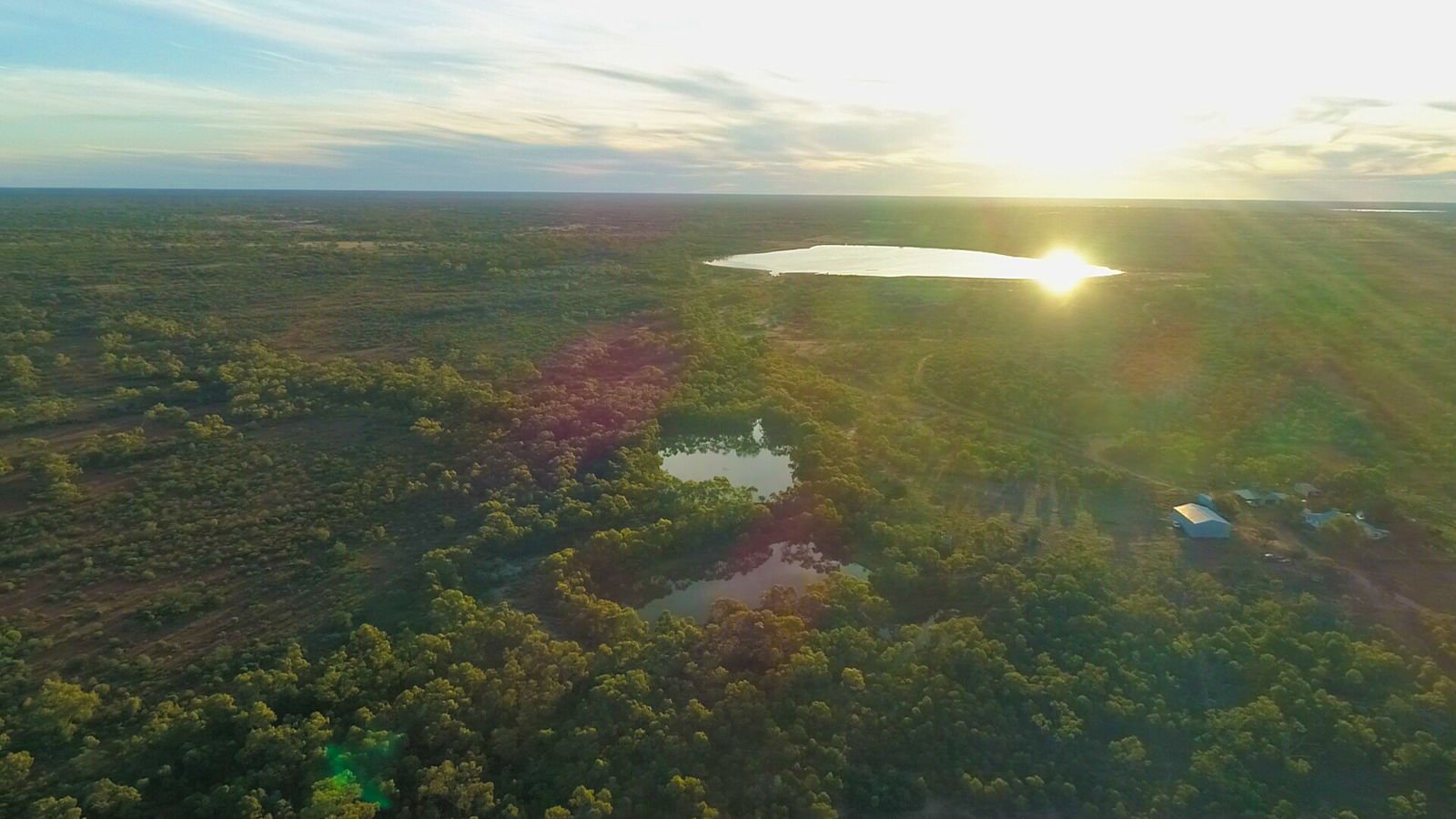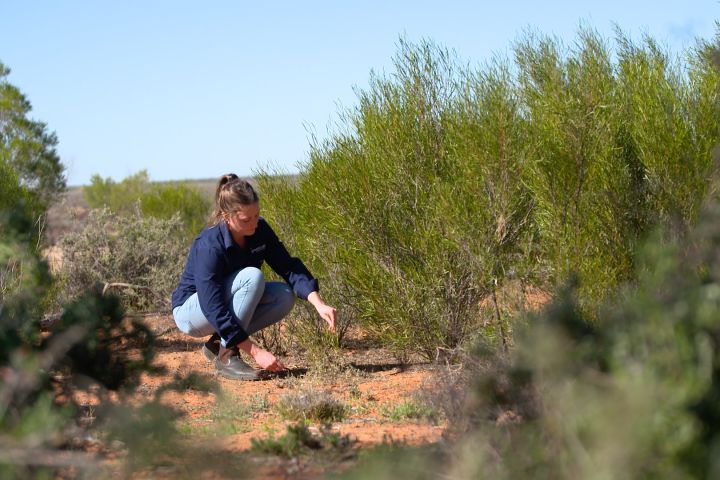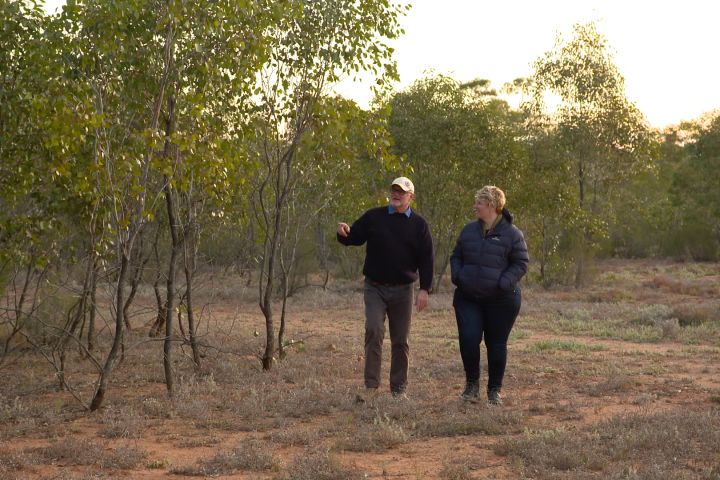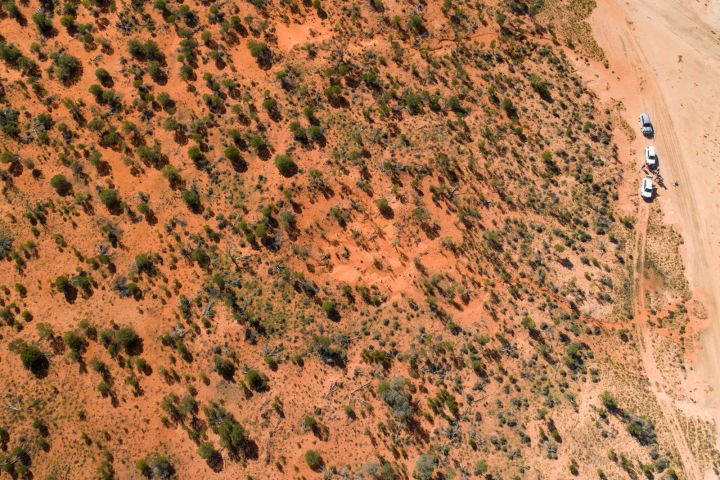Suncorp Bank is helping Australian farmers create a brighter future through carbon farming
Suncorp Bank – Australia’s first certified carbon neutral Bank for both its operation and transaction services – is supporting carbon farmers like Peter Ponder and Jim Strachan to future-proof their farms.
Share

Video transcript
Voice over
0:05: Out the back of Bourke. It’s a popular Australian phrase, used to describe anywhere remote, isolated and hard to reach. But for Peter Ponder and his family, it’s home.
Peter Ponder
0:17: We’re about 220 kilometres west of Bourke. The property Emaroo is about 125,000 acres. We farm sheep. Merino Sheep and cattle. We’ve been here since 1988.
Voice over
0:33: Three years ago, they decided to make a change.
Peter Ponder
0:37: The drought that we went through, up until about the end of '17. We sort of realised that we needed some other diverse income from something and carbon was it.
Voice over
0:49: In partnership with Greencollar, Peter began farming carbon, along with sheep and cattle. Increasing the native vegetation across the property, to capture and store CO2.
Louise Nott
0:58: Human induced regeneration is a method under the emissions reduction fund, whereby landholders are incentivised to make a land management change.
Voice over
1:06: Such as improved fencing, to eliminate the feral animals that feed on native plants.
Louise Nott
1:11: It's all about managing your grazing pressures whether that be from domestic livestock. Making sure that you are actually rotating them and resting periods. So that could be rotational grazing around from one paddock to the other, allowing that native pasture to actually come back, regenerate, so that there's more available feed on the ground.
Voice over
1:28: Reduced grazing pressure benefits young trees and shrubs as well. Regenerating into a native forest. Monitored and measured by Greencollar, they calculate the amount of carbon removed from the atmosphere, and sell credits to companies like Suncorp Bank.
Amanda Lee
1:44: This is our way of demonstrating that we are doing good now and we are able to remove the emissions from the atmosphere that we are putting in there through operating our business. And I think that is such an important part of banking you can feel good about. We want our customers to feel good about the bank they choose everyday.
Voice over
2:01: Customers like Jim Strachan, who has also become a carbon farmer.
Jim Stachan
2:06: Suncorp have been great for us. I mean we have had a wonderful relationship with them for a lot of years. During the droughts in particular when times were tight, they supported us.
Voice over
2:13: A situation Jim hopes to have future-proofed, by diversifying his income.
Jim Stachan
2:18 We've now developed waters, put in fencing, new sheds, new equipment, and cashflow and the consistency of cashflow from the carbon farming has allowed us to do that.
Voice over
2:27: Seven years into the project, high above his 19,000 hectare property Lakemere, it’s clear to see the benefits of carbon farming, aren’t just financial.
Jim Stachan
2:37: We’re half environmentalists anyway. If we don’t look after the land, it doesn’t look after us. And this works hand in hand.
Peter Ponder
2:42: It makes a great difference having the forestation on the land.
Voice over
2:46: And creates certainty for the next generation, like Peter’s daughter Hannah and his grandson James.
Hannah Mooring
251: My father and I were mustering cattle the other day and the regeneration of trees and things that I don’t remember seeing. The country has really had the opportunity to take off and put down a lot of seed into the seed bank for the future as well. We’re not replacing the rainforests out here. We don’t have rain forests here. We have what we have and I think we’re doing what we can with what we have.
Voice over
3:21: To create a brighter future.
Hannah Mooring
3:24: James, if he wants to be a famer and he wants to farm out here, we want to give the country to him the better than what we had it, I think everyone wants that.
When the Ponder family first moved to Emaroo Station in northwest News South Wales in 1988, sustainable farming was a brand-new concept and carbon farming wouldn’t be invented for another 23 years.
Back then, it was common to clear native bush and forest to make space for cattle. Dust storms were more severe, and fighting feral animals was a daily battle.
More than three decades later, things have changed significantly.
Emaroo Station Owner Peter Ponder said following the years of drought up until 2017: “We realised that we needed some other diverse income, and carbon was it.”
Carbon farming is a process that encourages farmers to make land management changes to regenerate rural habitats and remove carbon from the atmosphere. Working with companies like Greencollar, they are able to calculate the amount of carbon removed and sell carbon credits to companies like Suncorp Bank.
Peter said while farming carbon has provided them with a more consistent and alternative source of income, the most telling benefit has been the incredible change to the land.
“We’ve been through some pretty ordinary years, and the last couple of years have been pretty exceptional,” he said.
“It makes a great difference having forestation on the land. The wind erosion is the main thing here. And we get plenty of dust storms. But it holds the soil together. So that’s very beneficial.”


Fellow sheep farmer and Suncorp Bank customer Jim Strachan tells a similar story.
“Carbon farming doesn’t come at the cost of using the land for its usual purpose. They work hand in hand. If we don’t look after the land, it doesn’t look after us.”
Emaroo Station is one of four carbon farming operations Suncorp Bank has supported through the purchase of carbon credits as part of its carbon neutral certification by Climate Active. (Download the FAQs).
Suncorp Bank CEO Clive van Horen said: "Becoming carbon neutral is the right step towards reducing the effects of climate change and creating a brighter future for our customers and our people.
"We know this is only part of the journey. Suncorp Bank remains committed to a net-zero future and to actively pursuing steps to get us there by 2050.
"By this time next year, we will report on our emissions performance and set targets for our lending portfolio."

Suncorp Group accelerates our net zero target
Suncorp Group has brought forward our net zero Scope 1 and 2 emissions target by 20 years from 2050 to 2030. Underpinning this transition is a continued focus in reducing energy consumption in our vehicle fleet and our buildings.
And it’s a brighter future that Peter hopes to leave for his daughter Hannah and his grandson James.
“If James wants to be a famer and he wants to farm out here, we want to give the country to him better than what we had it,” Hannah said.
“I think everyone wants that.”



